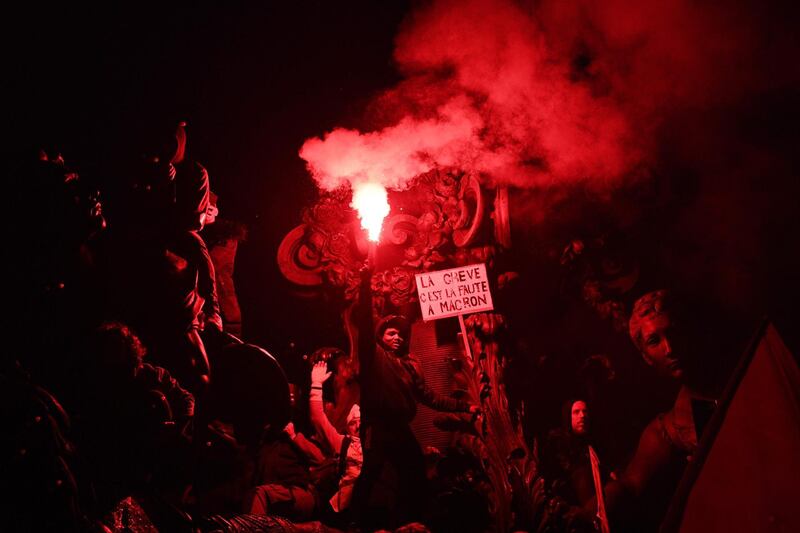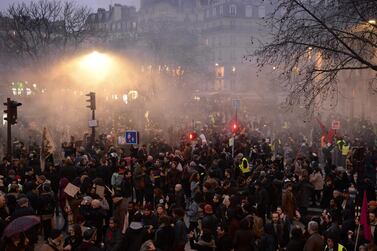France is facing continued chaos after unions opposed to President Emmanuel Macron’s proposal to overhaul the country’s pension system dug in before talks with the government.
Two weeks into a crippling transport strike, Mr Macron is trying to combine the country’s many pension systems into a single points-based scheme.
Critics say the pensions overhaul could force millions of people to work beyond the official retirement age of 62, which is one of the lowest in Europe, by setting a "pivot age" of 64 for a full pension.
The government insists the system will be fairer and more transparent, improving pensions for women and low earners in particular.
"My determination, and that of the government and the majority, is total," Prime Minister Edouard Philippe told Parliament on the eve of the new talks.
Mr Macron's office insisted on Wednesday that he would not drop the plan but was "willing to improve" some elements.
He said he hoped talks with union leaders would allow a pause in the strike so people could travel for the holidays, his office said.
A group of unions including the CGT, France’s second largest, said there would be no truce over the Christmas period unless the proposals were dropped.
Late on Tuesday, the CGT, backed by three other unions, decided to continue the strike action that has severely disrupted public transport in major cities, regional and international trains, and even grounded planes.
On Wednesday, the CGT was forced to defend the decision to cut power to thousands of homes.
Mr Macron’s government has condemned the power cuts, which hit at least 150,000 homes on Tuesday, the French utilities operator said.
"I hear they're cutting power to CAC 40 companies, prefectures, shopping malls," Transport Minister Elisabeth Borne said, referring to an index of companies on the French stock market.
"That's already rather questionable. But clinics, metro stations, fire brigades and thousands of French people also had power cuts. This is far from normal ways of striking."
Philippe Martinez, the head of the CGT, on French radio defended the power cuts, saying they were necessary to force Mr Macron to back down.
"These are targeted cuts," Mr Martinez said. "You'll understand that spitting on the public service can make some of us angry."
About 615,000 people took part in more than 100 rallies countrywide on Tuesday, the Interior Ministry said. The CGT said three times as many turned up.
Police fired tear gas and arrested 30 people in Paris after protesters hurled objects.
The strikes are still supported by a narrow majority of the French population, an Ifop poll published on Sunday suggested.
Mr Macron’s approval rating climbed two points but now sits on 30 per cent as he faces the most significant challenge to his reformist agenda since the Yellow Vest movement began in 2018.








